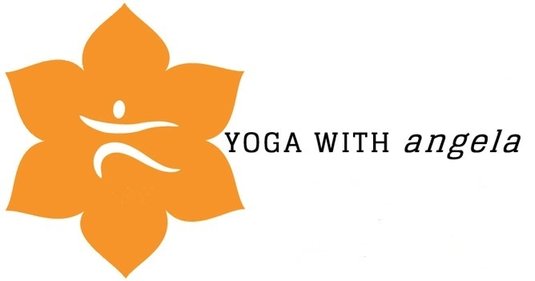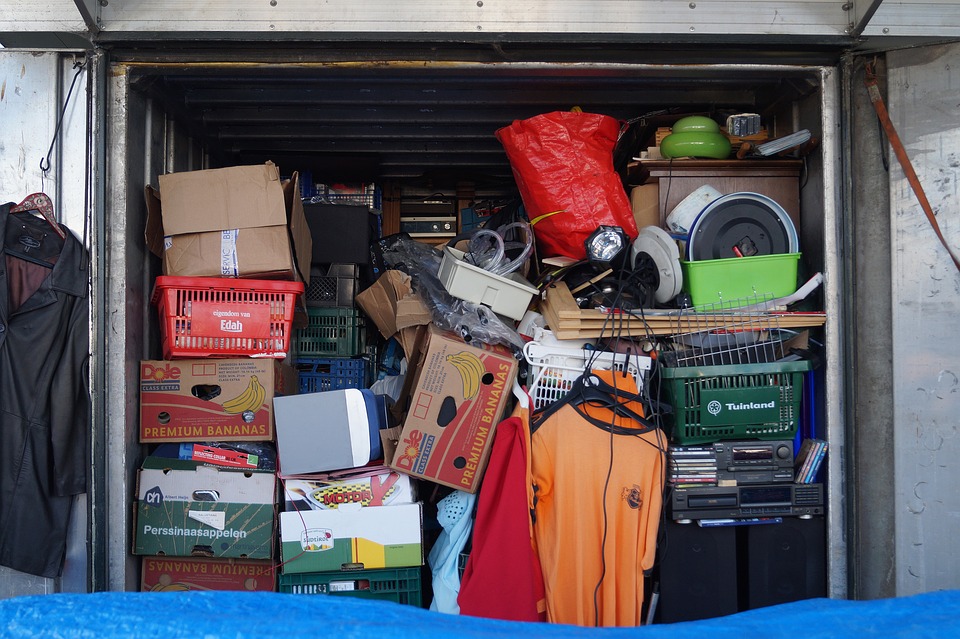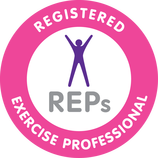(shudder)
Are you a hoarder, or do you find it easy to let go? When I think of a hoarder I think of someone who collects stuff; someone who says, "Don't throw that away, it might come in useful one day..."
I am the opposite with stuff. I don't like clutter or to hold onto things “just in case”. If an item of clothing has been in my wardrobe for two years and not been worn, it has to go! I do love a clear out. Believe it or not, I even have a skip sitting on my drive as I write, ready for me to fill with the stuff from the depths of my garage!
I like to hold onto the odd keepsake — something that holds deep associations, for example — but not rolls of old wallpaper, old floor tiles or out-of-date magazines.
Which camp do you fall into? Are you a hoarder or a slinger?
I sometimes find myself considering how this need to keep clutter at bay and to let go of things that no longer seem relevant can be translated into my own practice and my attitude of life in general.
I often start my classes quietly and ask people to sit or lie down, to draw their attention inwards and "let go". Specifically, to let go of the stress and tension that nearly always exists in people's lives — anything, from letting go of a difficult journey to class or letting go (for a few minutes, at least) of worries and lists that are buzzing around in their minds.
I have found, from my own experience and by talking to others, that we are very good at holding on to difficult memories or feelings of negativity or stresses and strains, but far less good at recalling the positive things that have happened to us.
In the news recently it was suggested that a pill has been developed by scientists that could erase painful memories. It could be used to help sufferers of post traumatic stress disorder and those plagued by hurtful recurrent memories.
But what do we have memories for? To learn from? To help us cope with situations good and bad? Is the way our personality develops linked to our memories?
One of the most thumbed books I have, and one I would thoroughly recommend reading, is called Buddah's Brain — The Practical Neuroscience of Happiness, Love and Wisdom, by Rick Hanson, Ph.D.
In the book, Dr. Hanson talks about the causes of suffering. He writes that we have ensured our survival by learning from discomfort and sorrow:
"The unfortunate side effect of three strategies that evolved to help animals, including us, to survive have worked well, but they also lead to suffering.
In order to survive an animal tries to:
It is only us humans that worry about the future, regret the past and blame ourselves for the present."
So, what if we could just let go of the worries about the future, accept the past and live for the present moment?
Maybe letting go completely is not the answer, but neither is it good to fill our mental skip to the brim with the clutter and the stuff we don't need. We should try to have the space in our minds and bodies to plant new seeds and let new and positive memories and experiences flourish.
Note: Just to let you know, I have already booked onto a retreat for next year! It is going to be in Rome next time! If you might be interested in coming along, you can find details on the Yoga with Isabell website.
I am the opposite with stuff. I don't like clutter or to hold onto things “just in case”. If an item of clothing has been in my wardrobe for two years and not been worn, it has to go! I do love a clear out. Believe it or not, I even have a skip sitting on my drive as I write, ready for me to fill with the stuff from the depths of my garage!
I like to hold onto the odd keepsake — something that holds deep associations, for example — but not rolls of old wallpaper, old floor tiles or out-of-date magazines.
Which camp do you fall into? Are you a hoarder or a slinger?
I sometimes find myself considering how this need to keep clutter at bay and to let go of things that no longer seem relevant can be translated into my own practice and my attitude of life in general.
I often start my classes quietly and ask people to sit or lie down, to draw their attention inwards and "let go". Specifically, to let go of the stress and tension that nearly always exists in people's lives — anything, from letting go of a difficult journey to class or letting go (for a few minutes, at least) of worries and lists that are buzzing around in their minds.
I have found, from my own experience and by talking to others, that we are very good at holding on to difficult memories or feelings of negativity or stresses and strains, but far less good at recalling the positive things that have happened to us.
In the news recently it was suggested that a pill has been developed by scientists that could erase painful memories. It could be used to help sufferers of post traumatic stress disorder and those plagued by hurtful recurrent memories.
But what do we have memories for? To learn from? To help us cope with situations good and bad? Is the way our personality develops linked to our memories?
One of the most thumbed books I have, and one I would thoroughly recommend reading, is called Buddah's Brain — The Practical Neuroscience of Happiness, Love and Wisdom, by Rick Hanson, Ph.D.
In the book, Dr. Hanson talks about the causes of suffering. He writes that we have ensured our survival by learning from discomfort and sorrow:
"The unfortunate side effect of three strategies that evolved to help animals, including us, to survive have worked well, but they also lead to suffering.
In order to survive an animal tries to:
- Separate what is actually connected, in order to create a boundary between itself and the world.
- Stabilise what keeps changing, in order to maintain its internal systems within tight ranges.
- Hold onto fleeting pleasures and escape inevitable pains, in order to approach opportunities and avoid threats.
It is only us humans that worry about the future, regret the past and blame ourselves for the present."
So, what if we could just let go of the worries about the future, accept the past and live for the present moment?
Maybe letting go completely is not the answer, but neither is it good to fill our mental skip to the brim with the clutter and the stuff we don't need. We should try to have the space in our minds and bodies to plant new seeds and let new and positive memories and experiences flourish.
Note: Just to let you know, I have already booked onto a retreat for next year! It is going to be in Rome next time! If you might be interested in coming along, you can find details on the Yoga with Isabell website.


 RSS Feed
RSS Feed
